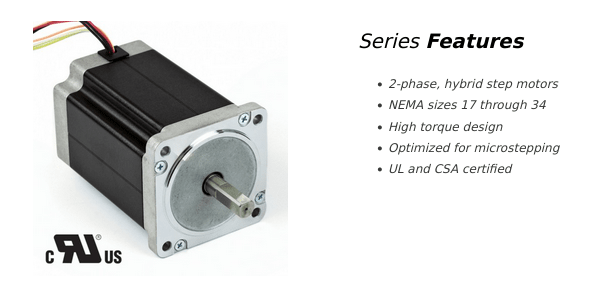Hello,
I am considering some smaller stepper motors for an application. All our equipment is certified to UL 751 and FCC part 15. I would like to find out if stepper motors fall into a category that requires UL testing. I have asked the lab that performs our testing but they are not familiar with stepper motors.
I have a few reasons to ask:
1. The power supply for steppers is typically 48 VDC. This falls under the 60 VDC limit but because steppers operate using pulsed DC, I am concerned they fall into the interrupted DC category which limits voltage to 24.1 VDC for frequencies of 10-200 Hz.
2. Stepper motors have a lot of heat gain. The ones I am currently bench testing reach 120°F
3. I am not finding many stepper motors that have either UL listed or UL recognized status. Most carry CE but that is not relevant to US testing requirements according to our lab.
By my term "limits" in 1 I am referring to the threshold which requires testing.
Has anyone gone through UL testing for products with stepper motors? Did you encounter any obstacles?
Thanks,
Kyle
I am considering some smaller stepper motors for an application. All our equipment is certified to UL 751 and FCC part 15. I would like to find out if stepper motors fall into a category that requires UL testing. I have asked the lab that performs our testing but they are not familiar with stepper motors.
I have a few reasons to ask:
1. The power supply for steppers is typically 48 VDC. This falls under the 60 VDC limit but because steppers operate using pulsed DC, I am concerned they fall into the interrupted DC category which limits voltage to 24.1 VDC for frequencies of 10-200 Hz.
2. Stepper motors have a lot of heat gain. The ones I am currently bench testing reach 120°F
3. I am not finding many stepper motors that have either UL listed or UL recognized status. Most carry CE but that is not relevant to US testing requirements according to our lab.
By my term "limits" in 1 I am referring to the threshold which requires testing.
Has anyone gone through UL testing for products with stepper motors? Did you encounter any obstacles?
Thanks,
Kyle

